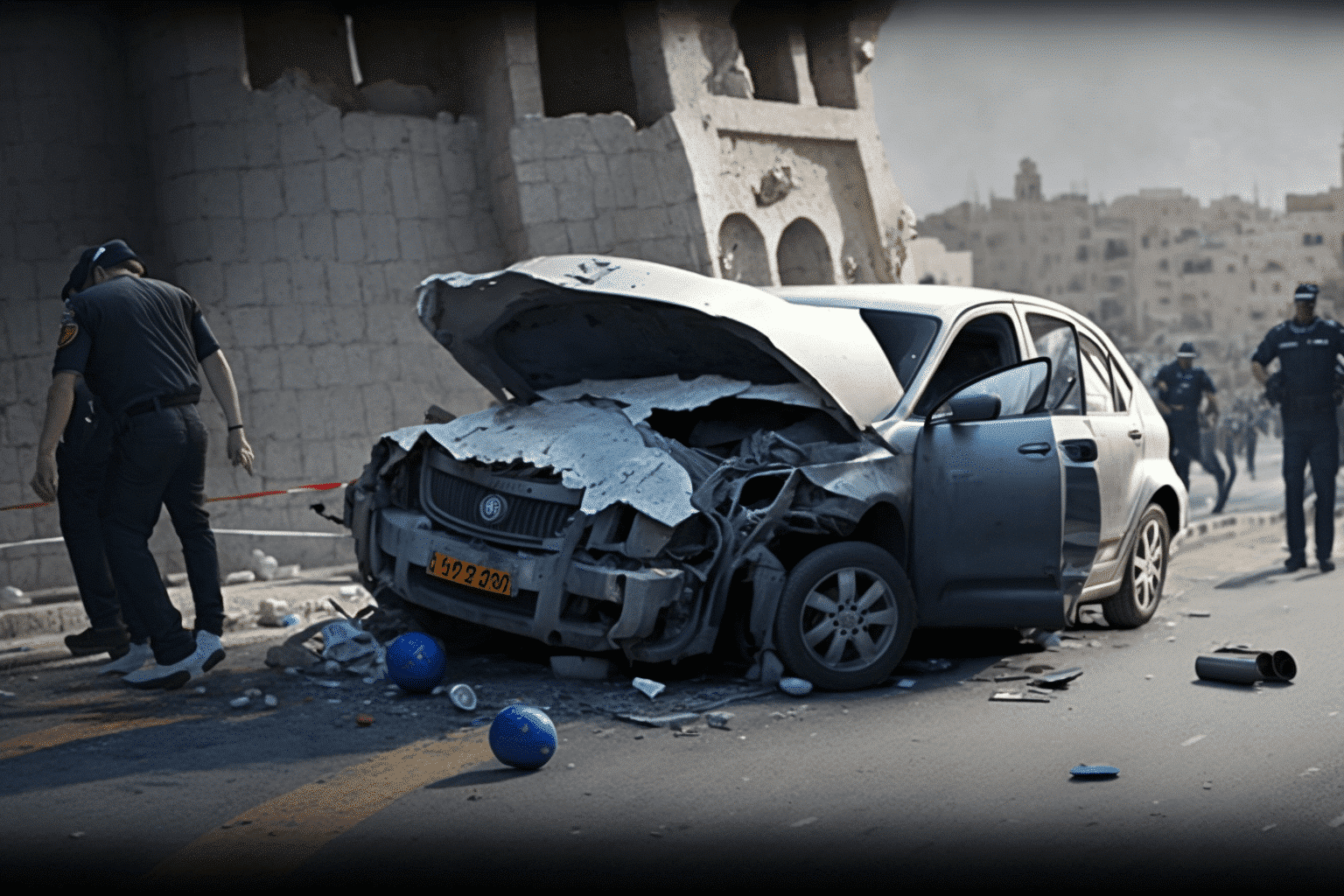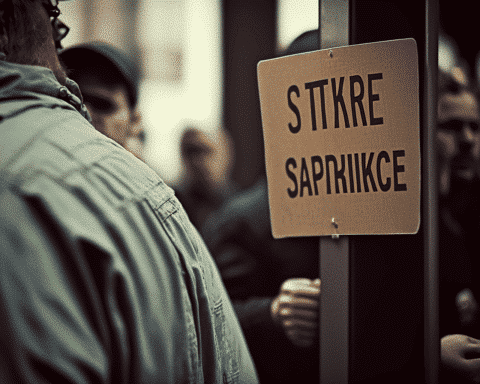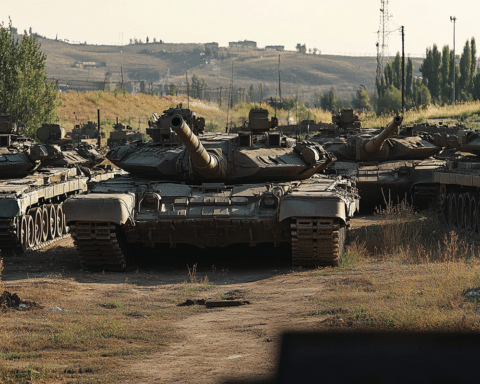Five people were injured in a vehicular assault near the bustling Mahane Yehuda market in Jerusalem on Monday, according to Israeli police. The driver was shot and killed on site. Among the victims, a 70-year-old man was critically injured. The incident is the latest in a year-long surge of violence affecting the region.
The Magen David Adom medical service reported that the five injured individuals were transported to a hospital from the scene. Israeli media identified the assailant as Hatem Nejima, a 39-year-old married father of five from East Jerusalem, who may have had mental health issues.
It happened as Israel prepared to commemorate Memorial Day for fallen soldiers and victims of militancy, beginning on Monday at sunset, followed by the 75th Independence Day.
Israel planned to restrict West Bank and Gaza Strip access to Palestinians except for humanitarian cases, with the closure lasting until late Wednesday. The country frequently increases movement restrictions during holidays, citing security concerns.
The Palestinian Health Ministry reported that Israeli forces killed a Palestinian man, Suleiman Ayesh Awaid, 20, in the Aqabat Jaber refugee camp in the occupied West Bank. The camp has seen multiple clashes between Israeli troops and Palestinians in recent months.
The Israeli military said they opened fire on two fleeing suspects in the area, striking at least one.
Over the past year, there has been increased violence between Israelis and Palestinians, with Israel conducting arrest raids almost every night in West Bank cities, towns, and villages in response to Palestinian attacks. While Israel argues that these raids are necessary to dismantle militant networks and prevent future assaults, the Palestinians claim they only prolong Israel’s 56-year occupation of the territories they hope to make an independent state.
Violence has intensified since the beginning of the year, with 95 Palestinians killed by Israeli fire in the West Bank, according to an Associated Press tally. At least half of these victims were affiliated with militant groups, while 19 Israelis were killed in Palestinian attacks.
Since the Muslim holy month of Ramadan overlapped with the Jewish holiday of Passover this past month, tensions have been extremely high. Earlier in April, an Israeli police raid on Muslim worshippers at a sensitive Jerusalem holy site led to rocket attacks from militants in Lebanon, Gaza, and Syria, to which Israel responded with airstrikes.
Earlier this month, Palestinian gunmen killed a mother and her two daughters, all British-Israeli citizens, in the West Bank. In another incident, an Italian tourist was killed and five others injured when a Palestinian-Israeli drove onto a bike path near a Tel Aviv beach in a suspected attack.
Tensions between Israelis and Palestinians show no signs of abating as both sides continue to experience violence and conflict. The overlapping of religious observances such as Ramadan and Passover has only heightened the friction between the two groups.
Israeli authorities are working to increase security measures and maintain public safety, while Palestinian officials condemn the ongoing occupation and raids. Peace talks have stalled in recent years, making it difficult to envision a resolution to the conflict anytime soon.
International efforts to mediate and facilitate dialogue between the two sides have failed. The United Nations and the United States have called for restraint, and a return to negotiations, but distrust and deep-rooted grievances have hindered progress.
In the meantime, the Israeli government continues to expand settlements in the West Bank, further complicating the situation and diminishing the possibility of a two-state solution. The Palestinian Authority, in turn, struggles to maintain control over its territories, particularly with the rise of extremist factions such as Hamas in Gaza.
As violence continues and diplomatic efforts stall, the future of the Israeli-Palestinian conflict remains uncertain. Both sides must commit to genuine dialogue and a willingness to compromise to break the cycle of violence and move towards a lasting peace. While supportive of these efforts, the international community must also acknowledge and address the underlying causes of the conflict, including historical grievances, territorial disputes, and the need for security and self-determination for both Israelis and Palestinians.




